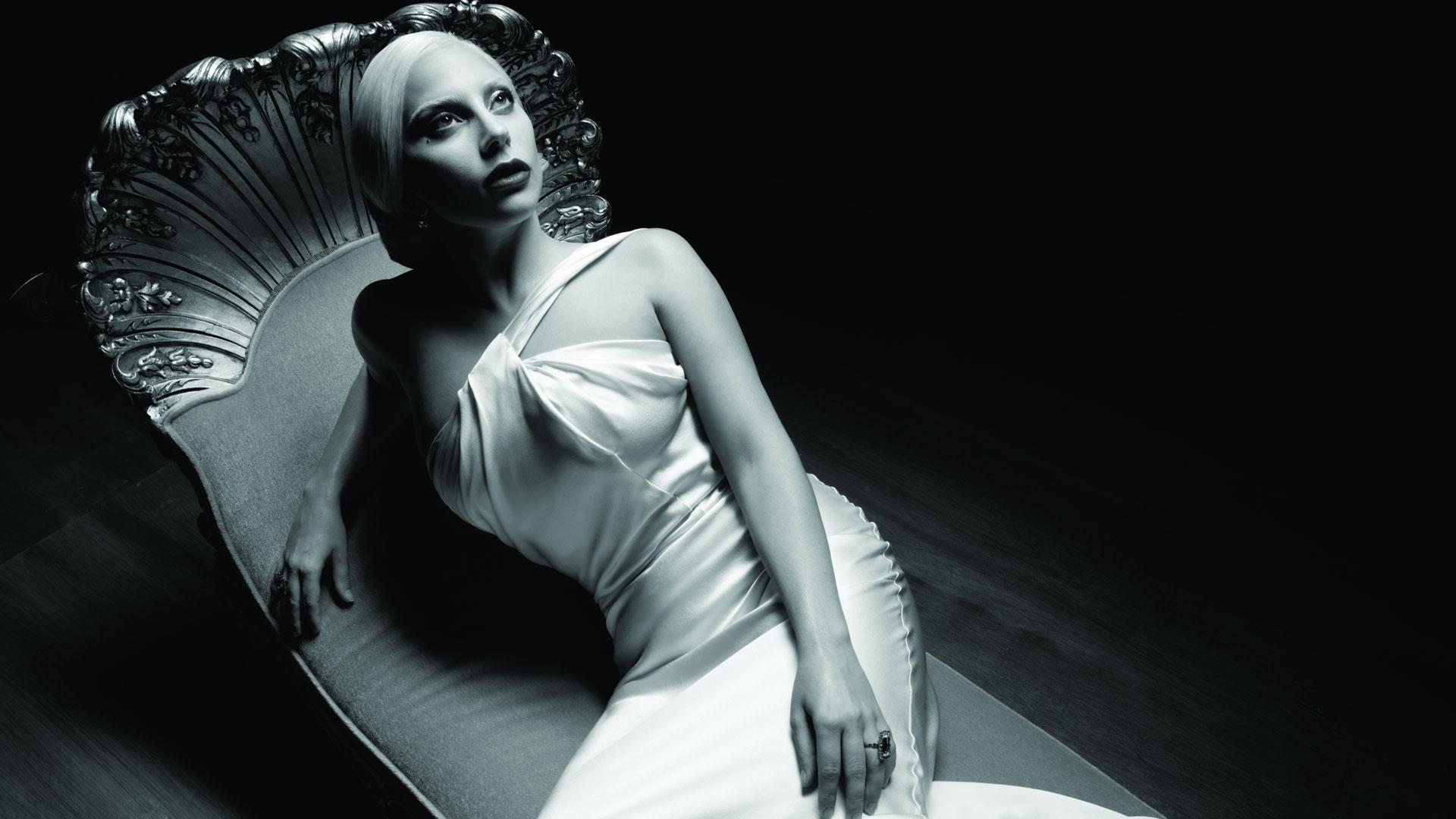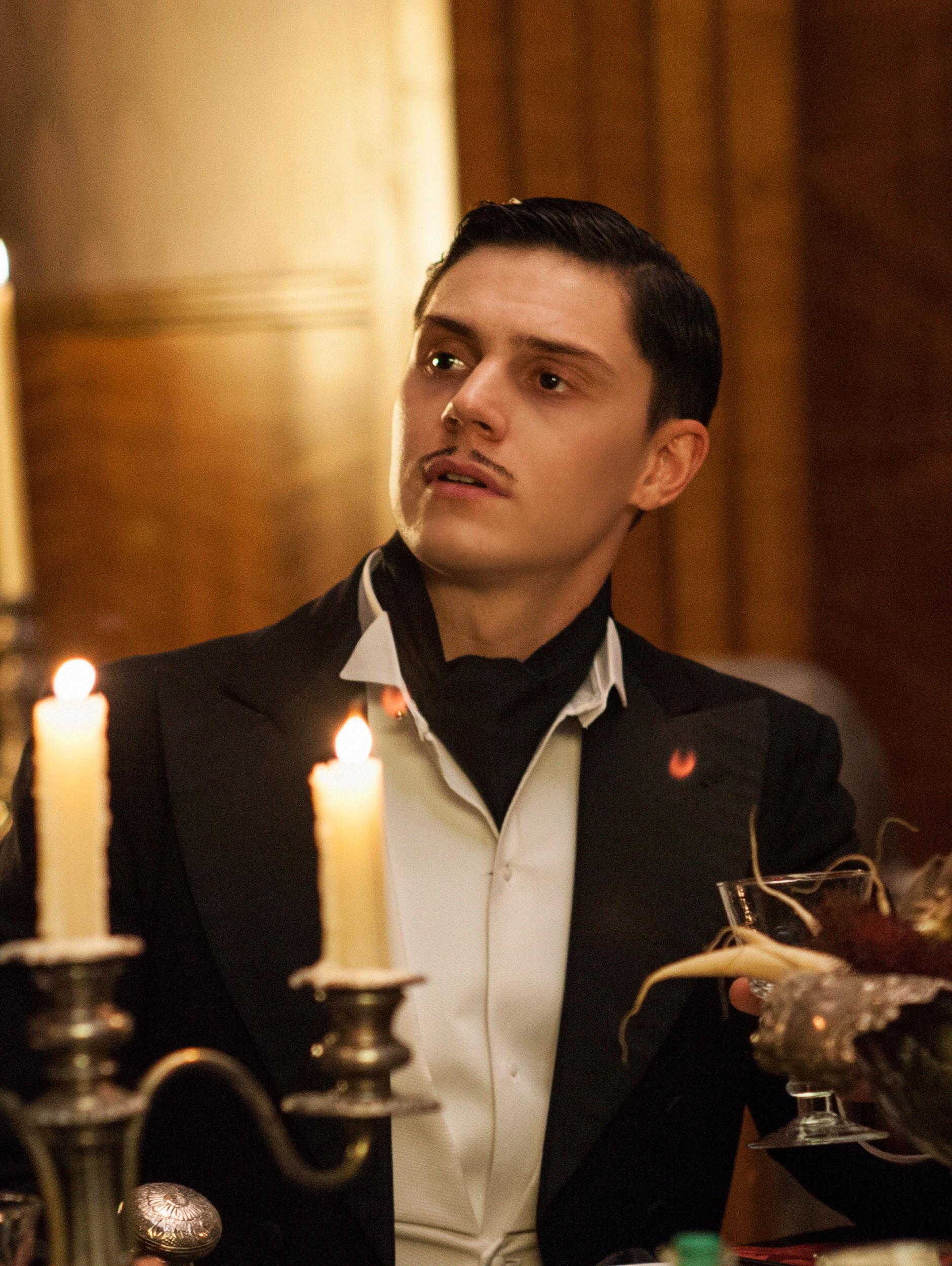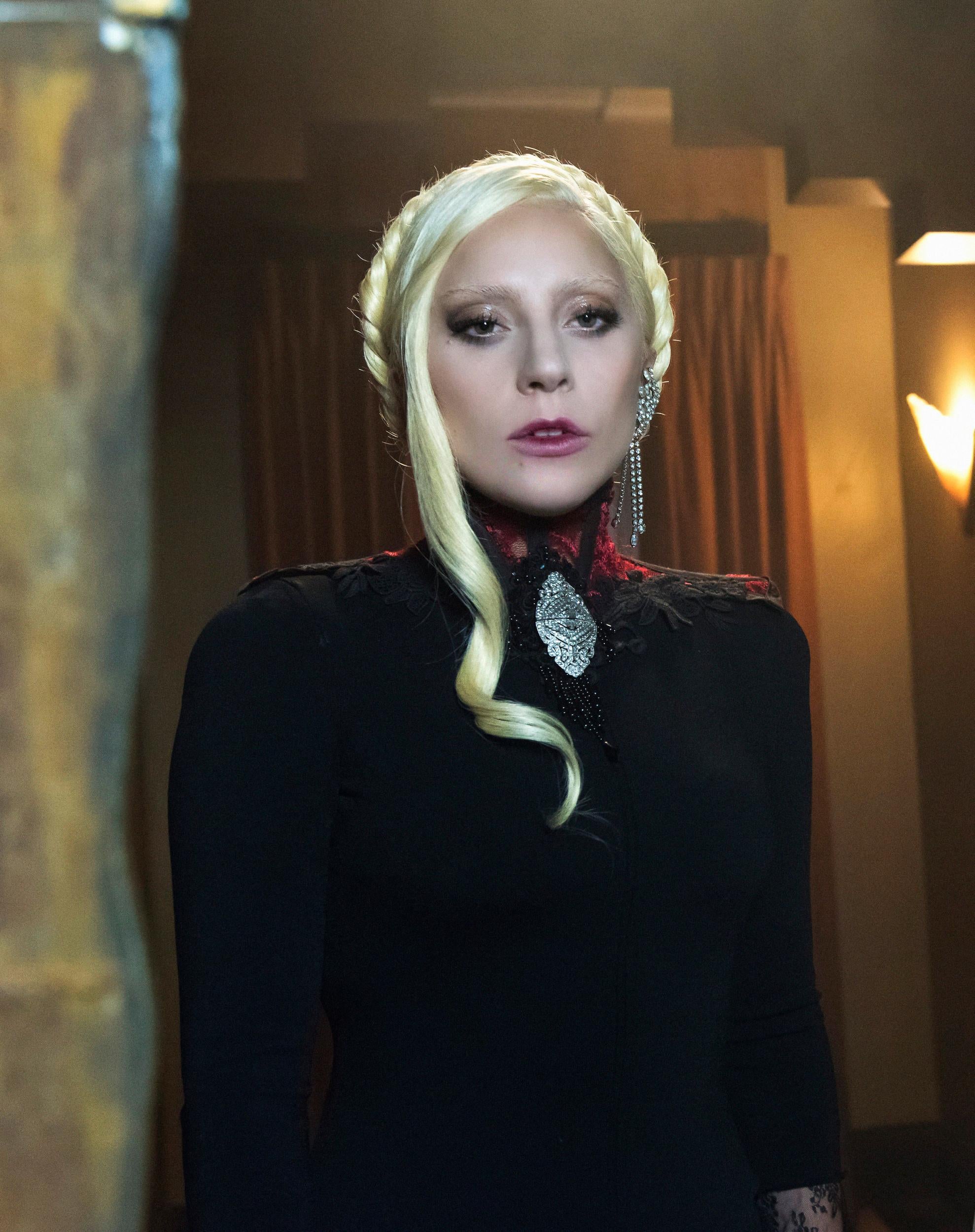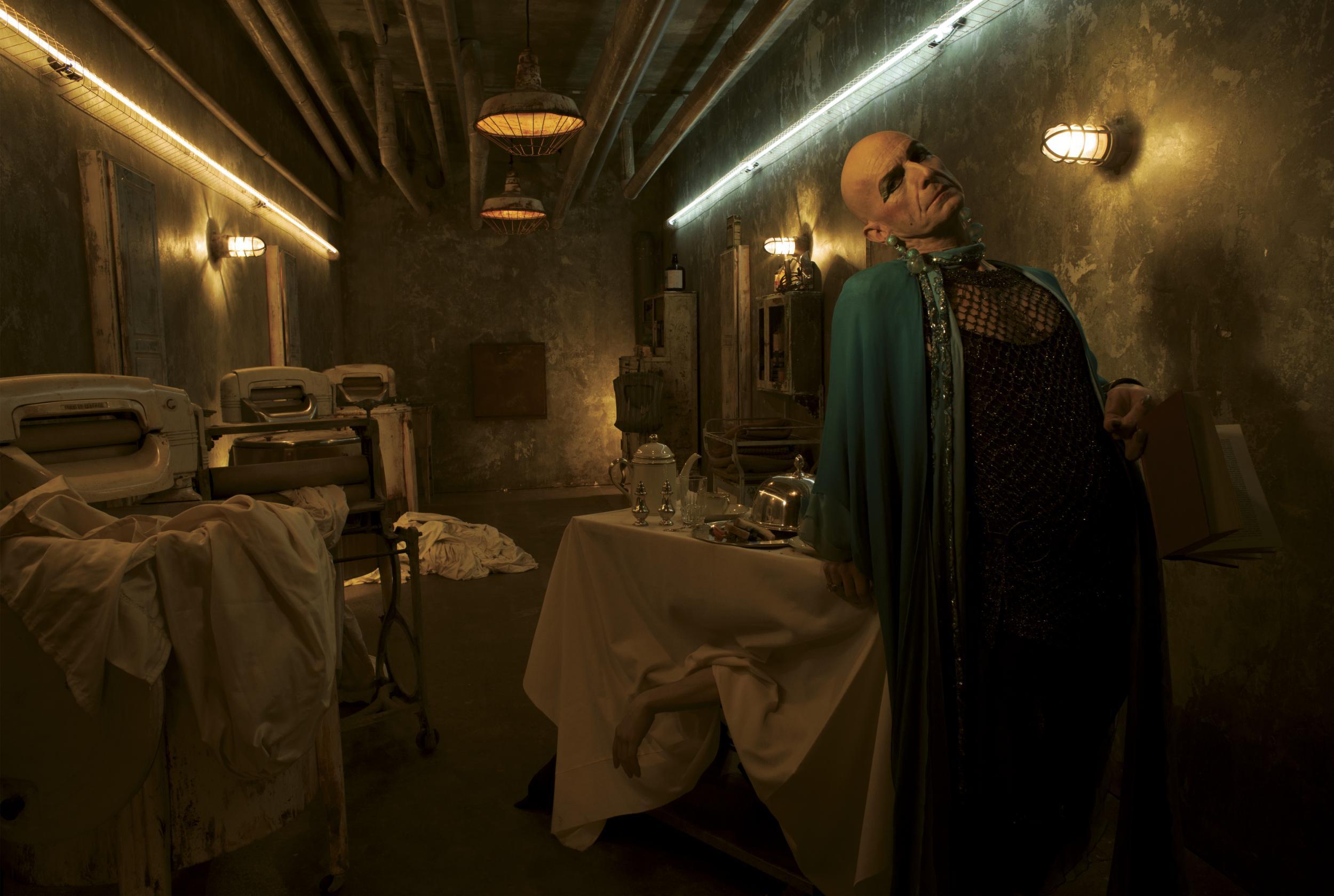Why FX's American Horror Story: Hotel deserves a second shot
As Hotel hits Bu-ray and DVD, it's about time for a reappraisal of the anthology show's fifth season

Your support helps us to tell the story
From reproductive rights to climate change to Big Tech, The Independent is on the ground when the story is developing. Whether it's investigating the financials of Elon Musk's pro-Trump PAC or producing our latest documentary, 'The A Word', which shines a light on the American women fighting for reproductive rights, we know how important it is to parse out the facts from the messaging.
At such a critical moment in US history, we need reporters on the ground. Your donation allows us to keep sending journalists to speak to both sides of the story.
The Independent is trusted by Americans across the entire political spectrum. And unlike many other quality news outlets, we choose not to lock Americans out of our reporting and analysis with paywalls. We believe quality journalism should be available to everyone, paid for by those who can afford it.
Your support makes all the difference.American Horror Story's sixth season has billed itself on reinvention: a new format, a secretive theme. A reactionary measure against what's been perceived by consensus as the series straying from its path; reflected in falling ratings and something of a critical backlash against the anthology show's previous outing, Hotel. American Horror Story's been relegated as a series in dire need of saving, but that's a damnation far beyond my own understanding.
With My Roanoke Nightmare currently airing on FX and season 5 hitting its home entertainment release, it's apt time for this unabashed Hotel fan to step out of the shadows and come to its defense. My Roanoke Nightmare's reinvention is certainly welcome, but it was never necessary; Hotel was a killer season, and it's about time we gave it its fair shot at the spotlight.
American Horror Story has always been one of TV's outliers, really, especially now that the format's been deemed to be experiencing its “prestige moment”; its middle-finger to the cinematic medium, ushering in show after show whose magisterial grace is dressed up in the threads of awards show darling. True Detective, Mr. Robot, or The Killing; all brilliantly executed, but their self-seriousness is wound tight like a corset. Even Game of Thrones and The Walking Dead have swerved towards the self-reflective and the ponderous in TV's effort to legitimise itself in its greatness.
Which is no problem in itself, expect for the fact that it's created an atmosphere of conformity within the medium's mainstream; this pressure for prestige spawning fear of the pure, untethered experimentation that cinema's own expansiveness grants itself. Really, it's hard to feel like you can simply have fun with the format anymore. American Horror Story: Hotel certainly isn't flawless, but it validates its own flaws in the lengths of its ambitions. There's nothing else on television even close to it – nothing as arch, silly, gruesome, and emotive all in a single breath.
In that sense, Hotel pays its dues far more to the dark of the multiplex than to the confines of the small screen; its willful perversion and trashy delights marking a collision point between pop culture indulgence and B-movie melodrama. Its catalogue of genre references make for a nostalgic, Tarantino-esque patchwork quilt approach to horror; from The Shining's rotting bathroom corpses, Suspiria's neon-laced lighting, or The Village of the Damned's haunting children. Hotel is born for cult television.
Indeed, though this will sound like blasphemy to its detractors, if there's anything close in spirit to what Hotel captures; we must look back to one of the most defining pieces of cult television out there, David Lynch's Twin Peaks. A factor which makes it especially interesting to see how the new season will be received once it drops next year. Both Hotel and Twin Peaks share an adoration of pure melodrama; though Peaks' surrealist touches will always define its place in the cultural memory, they're often a fairly minor thread in the show's obsession with scandalous affairs, familial secrets, and passion-fuelled murder plots.

Lynch knew there was an intrinsic eeriness to melodrama, which Hotel plays to the point of full-parody. We're so used to seeing its structures in the contexts of daytime TV, that when they're interplayed with serial killers and vampires, the whole thing becomes delightfully bizarre and ghoulish. A notion which comes to a peak in the "Devil's Night" episode, collecting together history's most famous serial killers, from Lily Rabe's Aileen Wuornos to John Caroll Lynch's John Wayne Gacy, for a dinner party (of sorts). It's an episode both chilling in its implicit threat, while simultaneously exploiting the public fascination with murder to a parodic excess; all sharply summarised in James Patrick March (Evan Peters)'s welcoming declaration that these gathered criminals are “the definition of American success”, if only for the fact their infamy has earned them a kind of immortality.
As with nearly every season, Hotel does stumble somewhat in its plotting; the symptom of its ambitions, establishing so many plotlines and ideas that bringing them to rein and to rest by the season's close always become a near-impossible task. It's an issue that seems to stem from the show's simple love for its characters, and a desire to tell each of their stories in full. Indeed, Hotel manages to assemble one of the most diverse collection of oddballs you'll ever likely find on TV, and imbues each with a life, a backstory, tragedies and fantasies. It seems so telling that the season even takes time in crafting the life of the Cortez's maid Miss Evers, whose only real role in the narrative serves as a side character there to clean bloody messes and crack grim jovialities. But thanks to a backstory and an impassioned performance by Mare Winningham, she quickly becomes one of the highlights of the season.

Rather unsurprisingly, a lot of the ire against Hotel ended up directed at Lady Gaga for the apparently unforgivable nature of her un-Jessica Lange-ness. Lange's contributions to American Horror Story were near-godlike work, yes, but that shouldn't be for lack of appreciation for what Gaga brings to the role of the Countess. In her, we see the ultimate modern vampire; decadence and sex laced into that velvet voice, bearing the regal air of a Golden Age movie star (clearly learned from lost love Rudolph Valentino). She is both primal and cultivated at once, and her airy delivery speaks to that coldest of hearts, entrancing any soul who may cross her path. She is magnetic in her own way.

Watch Apple TV+ free for 7 days
New subscribers only. £8.99/mo. after free trial. Plan auto-renews until cancelled

Watch Apple TV+ free for 7 days
New subscribers only. £8.99/mo. after free trial. Plan auto-renews until cancelled
That said, if there's a shining beacon, an emotional crux to be found; it's right in Denis O'Hare's Liz Taylor. Though Hotel may be invariably cruel to its inhabitants by lavishing them with death, betrayal, and karmic punishments for their digressions, there is only one character who seems to walk away from the ashes of the Cortez triumphant – and it's Liz. Yes, she isn't spared from death (no one is); but, as the Countess puts it, her passing isn't marked as a death, but as a transition. It's Liz shedding the last inklings of fear and hesitation that dominated her old life and crowning herself anew.
Amongst Hotel's excesses, O'Hare's Liz pulsates with such raw, vulnerable energy that it's hard not to feel like the entire series comes to revolve around her; in her journey to recover her true identity from the shackles of the life she was born into, as traveling salesman and father Nick Pryor. Her love for Tristan Duffy (Finn Wittrock) is achingly romantic in its brief allowance to flourish, especially in the moment she tearfully thanks him “for seeing the girl”. American Horror Story may be largely playful in its treatment of gender and sexuality, but Liz's self-discovery is intimately powerful.

Hotel also boasts long-time cast member Evan Peters' most remarkable performance to date; graduating now from the screwed-up pretty boys of past seasons, to the entirely transformative role of murderous Clark Gable lookalike, James March. So much of American Horror Story's best acting work has originated from its most outlandish roles, and Peters' sense of nuance here is formidable; stopping his villainous Hammer Horror creation just short of the absurd, so that he can play him both as the comic and the frightening pulsation of pure rage.
In the end, American Horror Story: Hotel's lukewarm reception seems only a marker of its own unique qualities; it's a show out of place in its own time, where it seeks ends so far from the rest of television's glossy precision and delivers something purely cinematic in its ambitions. Hotel may not have found its true appreciation now, but just wait – cult status is quietly waiting around the corner.
AMERICAN HORROR STORY: HOTEL is available on Blu-ray™ & DVD now courtesy of Twentieth Century Fox Home Entertainment.
Join our commenting forum
Join thought-provoking conversations, follow other Independent readers and see their replies
Comments